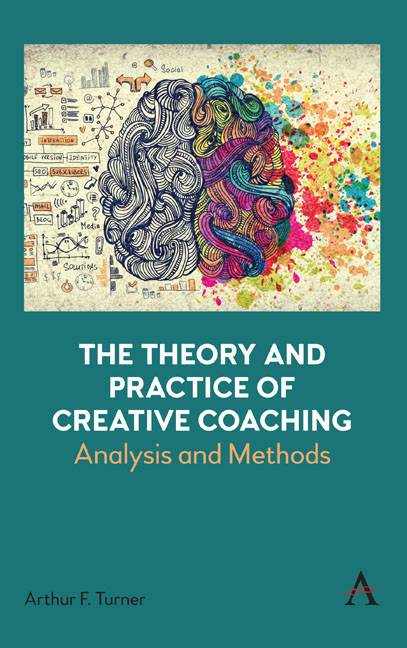Book contents
- Frontmatter
- Contents
- About the Author
- Preface
- Influences
- Introduction
- Section 1 Theory and Research
- Sections 2 and 3 Theory to Practice
- Section 2 Alternative Foci
- Section 3 Three Detailed Examples of Creativity in the Service of Executive Coaching (Walking, the Use of Finger Puppets and the Use of Music)
- Index
11 - Final Thoughts: Epilogue
Published online by Cambridge University Press: 28 February 2024
- Frontmatter
- Contents
- About the Author
- Preface
- Influences
- Introduction
- Section 1 Theory and Research
- Sections 2 and 3 Theory to Practice
- Section 2 Alternative Foci
- Section 3 Three Detailed Examples of Creativity in the Service of Executive Coaching (Walking, the Use of Finger Puppets and the Use of Music)
- Index
Summary
The ideas in this book have been developed over the past 13 years after my original qualification as a Level 7 coach and mentor (through the ILM Level 7 Coaching and Mentoring Diploma) through a mixture of teaching, developing practice and regular practice with new clients. At the time of my original engagement with coaching development (mainly working with executive leaders) I became curious about the ways in which coaching and mentoring could be developed beyond the usual models and theoretical approaches. This approach has been described in that past decade through the work of David Clutterbuck (and others) as moving towards maturity as a coach. However, it was only when I undertook further studies, this time at doctoral level (a part-time Doctorate of Business Administration, 2008–2014) that I began to consider three other things: firstly the strong link between coaching and mentoring and leadership, secondly the ways in which adults learn and thirdly the ways in which creativity emerges as an important factor on the impact and success of coaching on an individual.
During this journey of learning and awareness, there have been many high points with topics having more traction than others, and this book is not intended as being an end point in any way. Nor are the chapter headings supposed to describe every facet of my evolving thoughts about how a coach or mentor can provide the best possible support for an individual's development. This remains an intuitive journey which has largely been informed by aspects of the ideas held within the framework of phenomenology. Indeed, continuing on this journey has involved thinking about facilitative practice, the anxieties and uncertainties of practice in the moment, creating news ways of thinking about the shape of coaching session, the rational for a coaching programme, links between theory and practice and ultimately my own practice.
Of course, this means that there is no end to the creative ways in which the executive coach can apply these themes and ideas in the service of their client. In particular, the recent pandemic has been a catalyst in thinking about how this pairing of two individuals can achieve so much in the development of the client in terms of that person's career, life and ways of thinking and behaving.
Information
- Type
- Chapter
- Information
- The Theory and Practice of Creative CoachingAnalysis and Methods, pp. 129 - 132Publisher: Anthem PressPrint publication year: 2023
